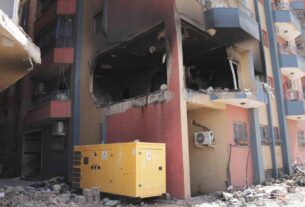(Bangkok) – The Cambodian government has issued an order to internet service providers to block access to online websites and social media accounts of three major independent media outlets, Human Rights Watch said today. The government should lift its orders to block access to the three outlets – The Cambodia Daily, Radio Free Asia (RFA), and Kamnotra.
The action was taken under a directive issued in July 2023 that requires blocking media web sites that the Department of Information and Audiovisual considers to “disseminate misleading news affecting the honor and reputation of the Royal Government and that fail to comply with the requirements … [of] the Ministry of Information.”
“Blocking websites of independent media outlets to prevent the Cambodian people from accessing news sources that don’t necessarily support the government shows Prime Minister Hun Sen’s total disregard for democratic freedoms and freedom of expression,” said Phil Robertson, deputy Asia director at Human Rights Watch. “Donors and diplomatic missions should demand that the government reverse course, lift these blocks, stop censoring access to news, and protect media freedom.”
RFA issued a statement on July 17 “condemn[ing] the order from the government of Cambodia for internet service providers to block RFA content on online platforms – which is in clear violation of Cambodian law and an attempt to censor the free flow of information ahead of the July 23 election.”
In May 2018, the Cambodian government adopted the Inter-Ministerial Prakas (proclamation) on Website and Social Media Control, which requires all internet service providers to install surveillance software to monitor content circulated on the internet. The proclamation grants the Post and Telecommunications Ministry the authority to “block or close” all web pages and social media pages containing “illegal [content] … considered as incitement, breaking solidarity, discrimination, create turmoil by will, leading to undermine national security, and public interests and social order.”
These laws on their face violate the Cambodian government’s obligations as a party to the International Covenant on Civil and Political Rights, which safeguards the rights to freedom of expression and information, and the right to privacy.
On February 12, Prime Minister Hun Sen announced the revocation of the operating license of the Cambodian Center for Independent Media, the parent organization of Voice of Democracy (VOD). The action followed the prime minister’s objection to a February 9 VOD article alleging that Hun Sen’s eldest son and heir apparent, Lt. Gen. Hun Manet, had been the official – acting in place of his father – who approved a financial aid package for Turkey following its destructive earthquake.
Hun Sen and the ruling Cambodian People’s Party have previously been criticized for sidestepping fundamental democratic principles in their announced support in 2021 for Hun Manet to succeed his father as prime minister. Constitutional amendments adopted in July 2022 make it easier for Hun Manet to be elevated to the prime minister post. Hun Sen recently announced that Hun Manet will take over as prime minister on August 22.
The role of independent media outlets in the country became increasingly important after the government in 2017 closed The Cambodia Daily and forced the sale of the Phnom Penh Post to buyers friendly to the government. The government also shut down FM radio stations that had been broadcasting programs from RFA. The attack on media freedom contributed to a fundamentally flawed national election in 2018, and continued targeting of media led to an even more closed environment in this year’s national elections, held on July 23.
The United Nations’ high commissioner for human rights, Volker Türk, has expressed concern that the 2023 Cambodian general elections were conducted in a severely restricted space and said he is “concerned that these restrictions and other intimidatory measures created a chilling effect, that deprived people of credible sources of news and information when they needed to make informed choices in the exercise of their democratic rights.”
“Hun Sen seems intent on attacking and preemptively censoring any potential criticism before his son, Hun Manet, takes over as prime minister,” Robertson said. “Such censorship is an extremely concerning sign that the next government will continue a crackdown on free speech and media freedom.”



